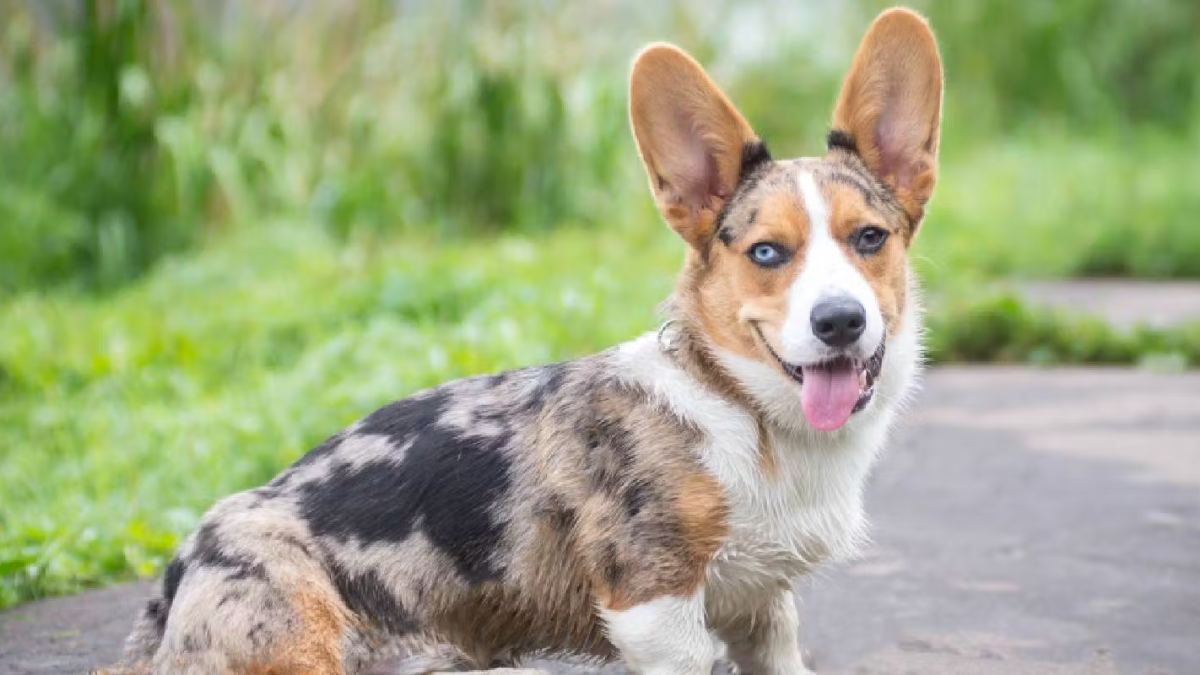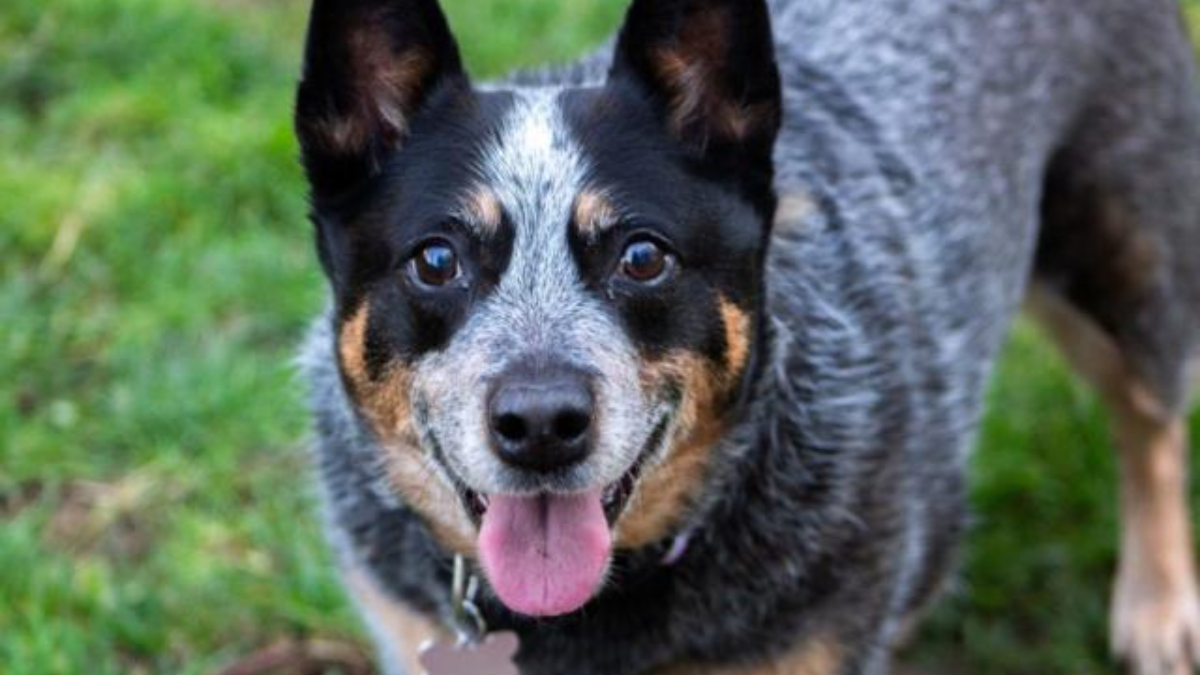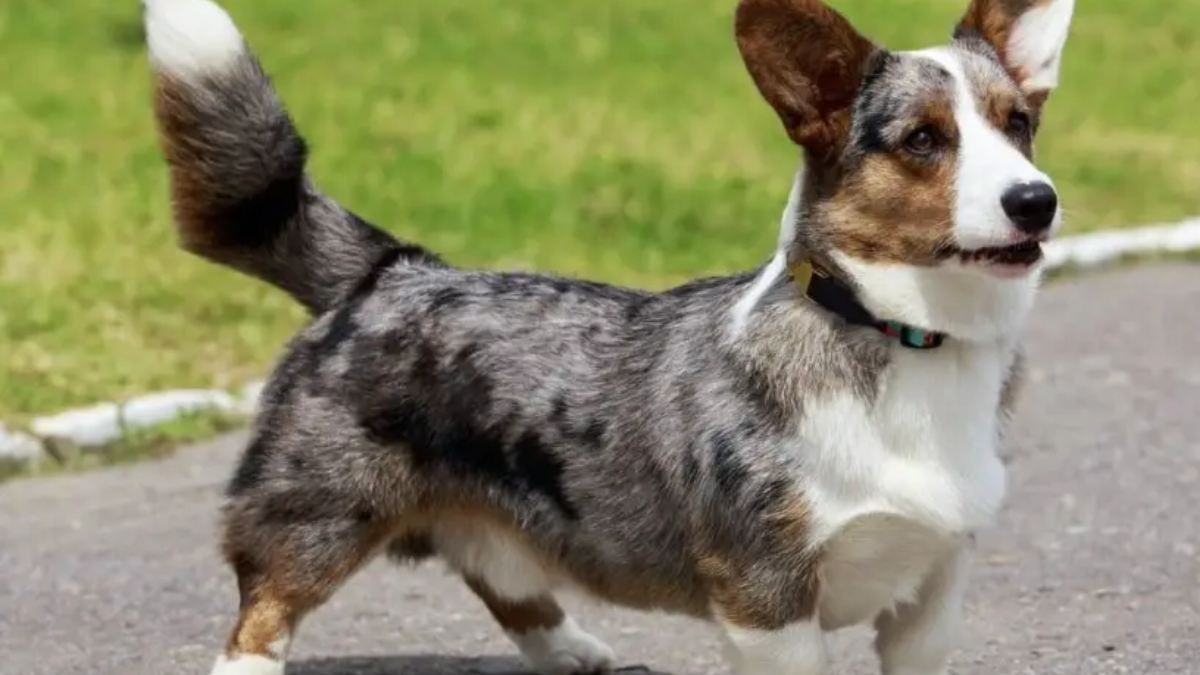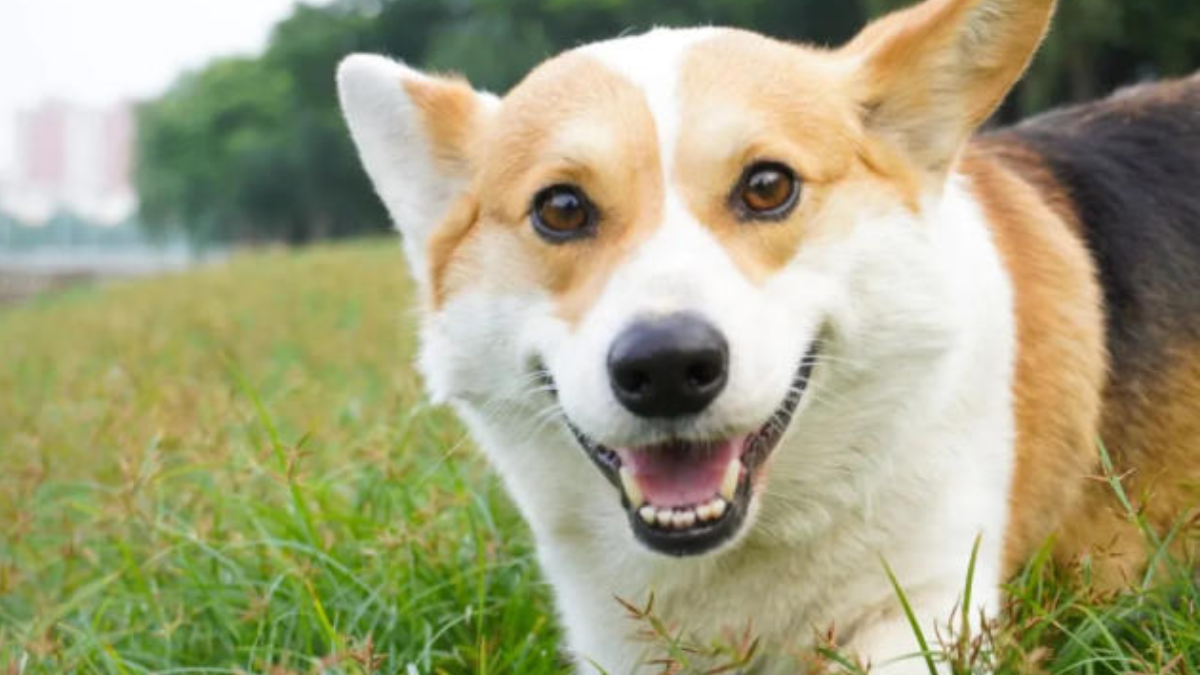A Cowboy Corgi is a hybrid dog breed created from the cross between a Pembroke Welsh Corgi and an Australian Cattle Dog. This mix combines the Pembroke Corgi's small stature and spirited personality with the Australian Cattle Dog's robust working instincts and endurance. The result is a compact and intelligent canine companion with a strong herding pedigree and an eagerness to please that makes them suitable for a variety of activities, from agility to companionship.
Pembroke Welsh Corgis and Australian Cattle Dogs each bring distinct qualities to the Cowboy Corgi mix. Pembroke Corgis, with their short legs, sturdy build, and friendly disposition, have long been cherished as herding dogs throughout Wales. They're known for their trainable nature and loyalty. On the other hand, Australian Cattle Dogs are larger, highly energetic, and were originally bred for driving cattle over long distances across rough terrain in Australia.

The combination of these two breeds in the Cowboy Corgi results in a dog that is not only adept at herding and other canine sports but also exhibits a strong attachment to family. With their sharp intelligence and desire for activity, Cowboy Corgis thrive in environments that provide mental stimulation and physical exercise. Careful breeding of these dogs can result in an attentive and versatile pet that is sometimes suited for work on ranches or farms due to their heritage.
Discover the Fi Dog Collar: Redefining Safety and Freedom
Enhance your Cowboy Corgi's safety and freedom with the revolutionary Fi Dog Collar. Engineered with advanced geofencing features and seamlessly integrated with the Fi app, this collar offers customizable safe zones for your pet. Whether you're strolling through the neighborhood or enjoying a day at the park, receive instant alerts on your smartphone if your furry friend ventures beyond the designated area.
Experience peace of mind knowing you can track your Cowboy Corgi's activity levels and location in real-time, right from your fingertips. Elevate your pet care routine and embark on new adventures with the Fi Dog Collar. Unlock the full potential of safety and freedom for your cherished companion today.
Origin and Breed History
The Cowboy Corgi is a hybrid breed created from a mix of two distinct purebreds known for their herding prowess and charming characteristics. It inherits not only physical traits but also behavioral tendencies from its parent breeds.
Genetic Background
The genetic makeup of the Cowboy Corgi comprises genes from the Pembroke Welsh Corgi and the Australian Cattle Dog, commonly referred to as the Queensland Heeler. These parent breeds contribute to the Cowboy Corgi's versatile skill set, ideal for cattle herding and companionship. While Pembrokes hail from Pembrokeshire and are known for their association with the Queen of England, the Queensland Heeler, with its roots in Australia, is a result of a crossbreeding process aimed at creating an exceptional herding dog tenacious enough to manage cattle over vast distances.

- Pembroke Welsh Corgi
- Origins: Pembrokeshire, Wales
- Traits: Short stature, active, intelligent
- Notable: Favored by the Queen of England
- Australian Cattle Dog
- Origins: Australia
- Traits: Sturdy build, energetic, loyal
- Notable: Also known as Queensland Heeler
Corgi Popularity
Due in part to their royal association with the Queen of England, Pembroke Welsh Corgis have enjoyed significant popularity. This has contributed to the rise in interest in Corgi hybrids, including the Cowboy Corgi. The breed's cute appearance, combined with its alert and active demeanor, make it a well-liked companion among enthusiasts.
- Factors Influencing Popularity:
- Royal association
- Distinctive appearance
- Affable temperament
Role of Cowboy Corgis
Cowboy Corgis inherit the strong herding instincts from their parent breeds. This makes them suited for similar work environments as their ancestors. Despite their smaller size compared to the Australian Cattle Dog, Cowboy Corgis exhibit a high level of energy and intelligence that effectively compensates during herding tasks.
- Role in Herding:
- Combines Corgi agility with heeler endurance
- Adaptable to various herding tasks

Physical Characteristics
The Cowboy Corgi is a distinctive hybrid that inherits notable physical traits from both the Cowboy and the Corgi. It showcases an appearance marked by a robust, compact body covered in a thick, often multicolored coat.
Size and Stature
- Height: Typically ranges from 10 to 13 inches (25 to 33 cm) at the shoulder.
- Weight: Averages between 25 and 30 pounds (11 to 14 kg).
- Body: They exhibit a long body with disproportionately short legs, characteristic of their Corgi heritage.
Coat and Colors
- Coat: The Cowboy Corgi has a thick, weather-resistant double coat, suitable for various climates.
- Texture: The coat tends to be short to medium in length.
- Colors: Common coat colors include:
- Red: A rich, rusty shade that can vary in intensity.
- Blue: Often manifests in a blue merle pattern, a mottling of blue and gray.
- Sable: This coloration includes a mix of light and dark hairs, producing a shaded appearance.
- Black: Solid black or black combined with white, often seen in Cowboy Corgis.
- Merle: A marbled pattern of dark blotches against a lighter background.
- Roan: This less common pattern features an even mix of colored and white hairs.
Temperament and Behavior
Cowboy Corgis exhibit a blend of characteristics that make them both delightful companions and diligent working dogs. They possess a vibrant energy and are known for their intelligent and affectionate nature.

Personality Traits
Cowboy Corgis are intelligent and playful, often displaying an eagerness to engage in activities with their owners. They are:
- Loyal: Deeply devoted to their family, Cowboy Corgis often form strong bonds.
- Active: A high level of energy makes them keen on regular exercise and playtime.
- Love and Affection: They are known for their affection towards their owners, thriving on companionship.
Herding Instincts
Cowboy Corgis retain strong herding instincts from their herding dog lineage. This influences their behavior in various ways:
- Herding Behavior: They may attempt to herd people or other pets, a trait rooted in their lineage as family dogs and herding animals.
- Training: Their instinctual intelligence makes them responsive to training, necessary to manage their herding impulses.
- Exercise Requirements: The herding instinct contributes to their need for physical activity; they benefit from having tasks to channel their energy constructively.
Care and Health
Proper grooming, a balanced diet, and regular exercise are essential for a Cowboy Corgi's well-being. Vigilance in monitoring health conditions can contribute to a longer, healthier life.

Grooming Needs
Cowboy Corgis require regular grooming due to their double coat which is prone to shedding.
- Brushing: At least twice a week.
- Baths: Once a month, or as needed.
Consistent grooming not only minimizes shedding but also provides an opportunity to check for any skin issues or parasites.
Exercise and Diet
These energetic dogs need daily physical activity to maintain their health and weight.
- Exercise: Minimum 30 minutes twice daily.
- Diet: High-quality dog food with measured calories based on vet recommendations.
Puzzle toys can keep their active minds engaged and help with training by providing mental stimulation.
Health and Lifespan
Cowboy Corgi's lifespan ranges between 12 to 14 years, but they are prone to certain health concerns.
- Progressive Retinal Atrophy (PRA): Regular vet checks for eye health.
- Hip Dysplasia: Weight management and proper nutrition can reduce risk.
- Intervertebral Disk Disease: Avoid stairs and jumping to lessen stress on the spine.

Preventative care through regular vet visits is key in identifying and managing potential health issues early.
Conclusion:
In conclusion, the Cowboy Corgi truly encapsulates a wonderful fusion of charm and vigor. Their distinct blend renders them captivating companions, enriching every moment with their presence. Mastering their care requirements and offering consistent training fosters a profound connection with your Cowboy Corgi, ensuring mutual satisfaction and joy. Embrace the exhilarating journey of nurturing this exceptional breed, and relish the unparalleled happiness they bestow upon your life with their unwavering loyalty and affection.

